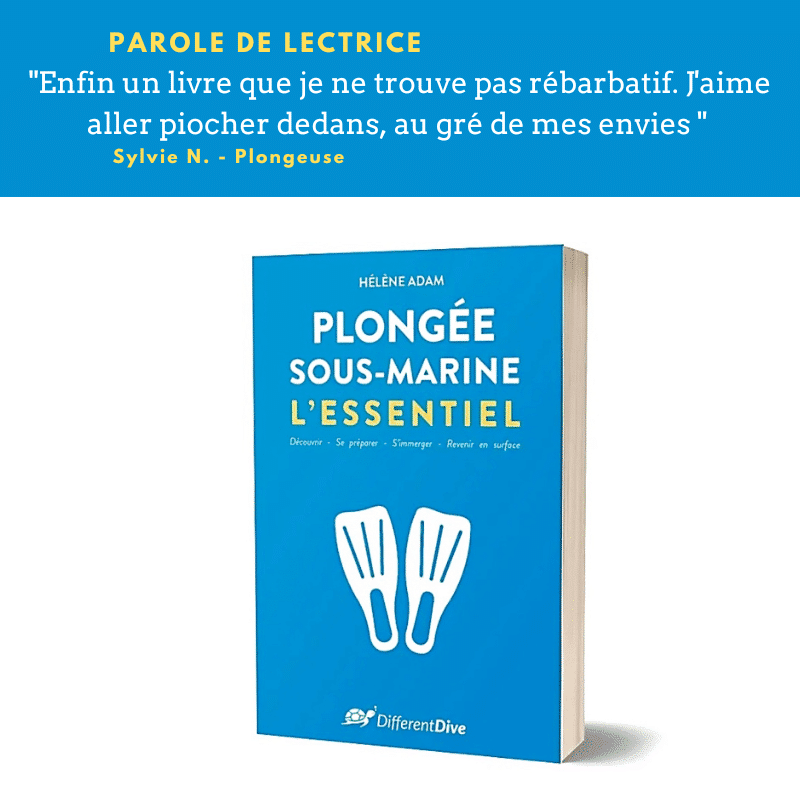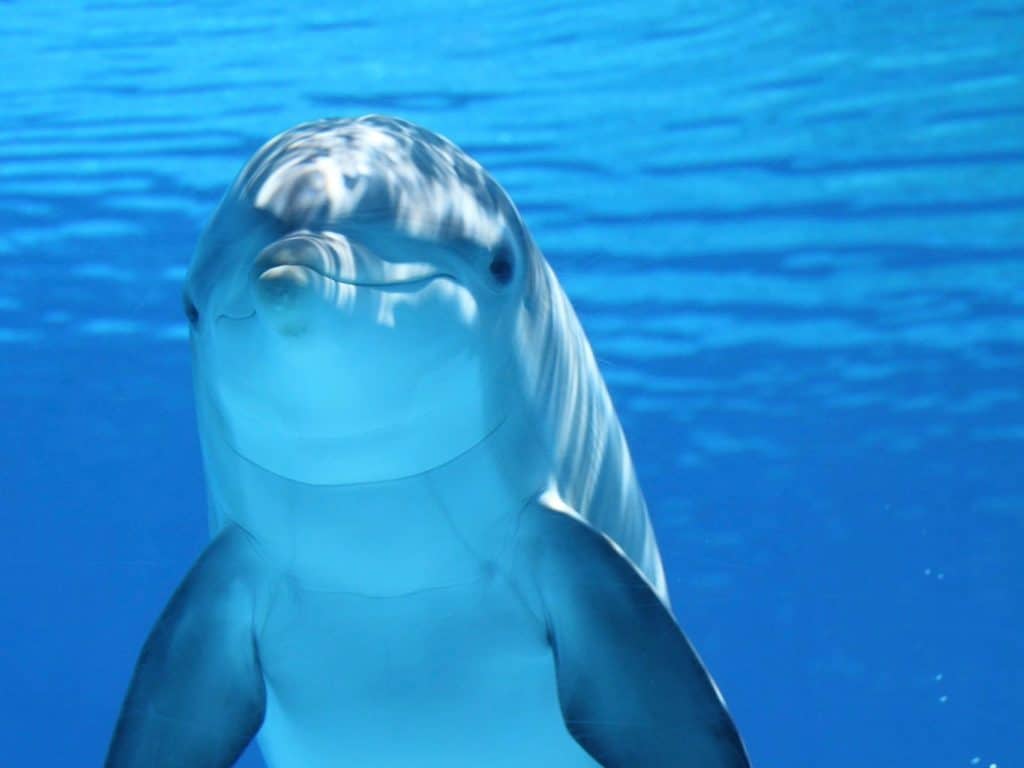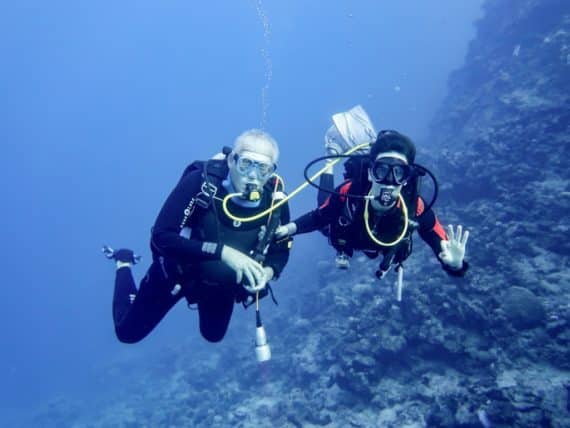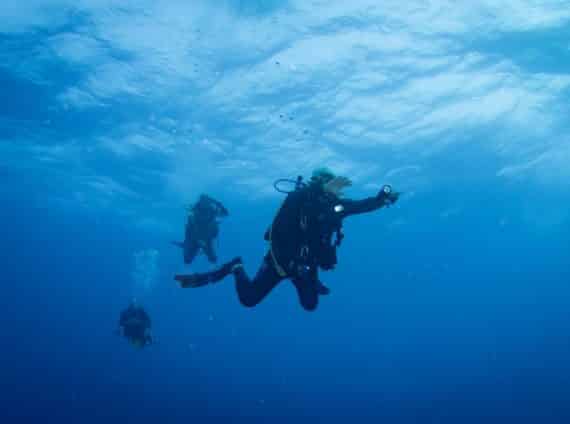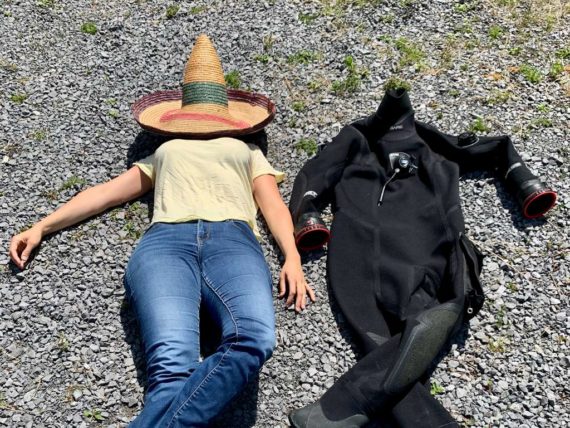Diving Accidents : How to avoid the suite of Mistakes you should Never Do !

Mistakes in media reporting too often highlight cases of diving accidents leading to the death of individuals.
While some accidents remain unexplained, mistakes in recognizing others turn out to be the conjunction of several unfavorable factors. These factors, taken individually, may not have had such an impact, but mistakes in managing them when overlapping have led to dramatic situations.
Most of these diving accidents factors can be reduced. Eliminated or neutralized by greater vigilance of the diver himself. Of his dive team members and / or the dive leader.
This was not the case that year. Many years ago. Early summer, there was a heat wave.
First mistake : I dive
With a group of friends we decide to go diving and we meet in a Belgian quarry in the middle of the morning.
I am tired physically and psychologically. The week was hard and the death of a colleague at work affected me a lot. I tell myself that diving will do me good. I feel so well when under water without think to diving accidents.
At that time, I was an autonomous diver limited to the depth of 30 m. And I had more than 150 logged dives.
Second mistake : the dive profile
During the dive, my buddy (same level of certification) gets a problem with his equipment. And twice we surface and go back each time down to 30m. Typical profile for diving accidents.
Finally our yoyo dive is going well. We get out of the water … the heat is overwhelming.
Third mistake : the small details that kill in most diving accidents
The weather is beautiful and the group of divers decides to go to another quarry to make a second dive before we meet in the early evening for a party all together.
We pack our dive gear in the car. I’m thirsty, I drink a little water … my bottle is empty. Too bad… and we go.
An hour after the first dive, we are on the bank ready to equip. While nibbling our sandwich. We wait another 30 minutes before jumping into the water to have a surface interval that seems “acceptable” 😉
Fourth mistake : I does not dive with the same buddy and he does not respect his privileges. This is a door open to diving accidents
My morning buddy does not belong to the afternoon team. So I am assigned another buddy who is the only one to have a level of dive leader in our group. He is a Dive Master (diver 4 *) in which I have confidence.
He proposes to go down to 40m. Why not?
It looked nice and both of us (at that time) think in good faith that with his certification we can go 1 0m lower than my privileges. Since I started my training of autonomous diver to 40 m. (I started this training with certified and competent instructors not diving that day).
Of course we know that it is deeper than the morning dive but the water tempts us and we decide to make the dive at this depth. It is not because we do that for the first time that we will have a problem !
I’m always thirsty. I go very fast in the water to cool down (!!!)
We descend to 40m. I feel a bit strange (narcosis ?) I come closer to my buddy “just in case” but without communicating anything to him. In the last minutes of the ascent, I feel bad, surely the accumulated fatigue … We surface after 45 minutes of diving. Still without thinking of diving accidents.
Fifth mistake : Accident denial
As we get out of the water, a sharp pain crosses my lower back and I find myself on the shore, unable to make the slightest movement.
I immediately inform my buddy. He suggest that I leave my gear on the spot. He will come back later to pick it up. What he will do. I walk painfully towards my car, get dressed and join the other members of my group in the space made inside the circle of our cars 😉
It’s hot and finally one of the divers gives me a small bottle of water. It feels good. As I am unable to stand, I lay flat (in the sun) in the gravel and we gladly discuss the planning for the rest of the day. My Dive Leader buddy tells me that this back pain is strange and asks me if this often happens to me. I reply that in the past I have suffered from back pain, that they have disappeared long ago but that they are surely back today. Nobody worries unduly and time passes. And still nobody is thinking about diving accidents.
The DAN suitcase is there
A few meters from me, with the oxygen tank ready to be used. And nobody thinks about it. We talk, we laugh. Life is beautiful.
To go to our friends who will welcome us for the evening, I give my car to another person and step in with two divers.
The journey lasts 20 minutes and I collapse in the back seat telling them that it is painful and that I feel bad.
As soon as I arrived at my friend’s house, they gave me 1 gram of paracetamol to help reduce my back pain. Half an hour later, as there is no effect of the drug, I decide to shorten my evening and go home. And incredibly still no single idea that diving accidents may occur like that.
I take my car and begin to drive home. Violent nausea strikes me. I drive very slowly and finally reach my house where I drag myself to my bed telling me that I am not well.
At this moment I have not yet thought for a second that my condition could be due to diving accidents. I do not want to think about it. No one in my group could / wanted to think about it.
Yet, I can’t fall asleep : why is this back pain so violent ?
Sixth mistake : I do not start the emergency chain
At around 11pm, I finally have a flash and I take the dive books from my bedside table: I open the pages about diving accidents and I start to be very scared.
What I read is exactly what I feel in my body right now. To sum up, it is also written that without care either there will be real neurological sequelae, or the symptoms will disappear in 24 to 48 hours. I’m terrified.
The instructors of my diving club of the time so often hammered us: “in the slightest doubt, call emergency 112 “
I know that by doing this … I’m going to be transported to the hyperbaric recompression chamber, it seems obvious to me.
But who will take care of my 3 sleeping children in my remote home in the countryside?
I panic completely
And make the worst decision : I do not call for help and wait until the next morning!
A few hours later, when I woke up, the nausea disappeared. My back pain is always present but less violent. I told myself that I was wrong, I exaggerate, and I phone the physiotherapist to receive me urgently. An appointment is taken for the end of the day, 24 hours after I left the water.
Obviously, he sees nothing and does not understand at all where this pain can come from. This pain does not seem “logical” to him. When I tell him about my doubts about diving, he tells me that indeed diving might be the cause of my pain. He asks me to go to the doctor to check it all … check what ?
Of course, I do not obey … I’m better.
24 hours later all the symptoms disappeared as if it was by magic. I’m fine, very good. I’m happy, so happy to feel fit.
I think I was lucky … a lot luck.
Seventh mistake : silence is kept
Since I’m fine, I decide not to talk to anyone.
It is a strange feeling that takes hold of me as time goes by : maybe I am too sensitive to the effects of diving? Maybe if I say it, nobody will want to dive with me anymore ? Maybe I will not be allowed to dive ? (Just no way !). So I think I may have dreamed all this. That it surely had nothing to do with diving. That my mind got wrapped up for nothing.
… But deep inside me I know that everything happened, all this was real.
A shame mingled with a fear of having done something wrong makes me keep silent.
Finally the right attitude : I speak about diving accidents
The dives follow each other during that summer with always this fear for me to feel this horrible pain coming back.
Two month later probably due to this stress, I decide to discuss the case with my club chief instructor who was listening very carefuly and offered me (among other actions) to carry out a few dives together to regain confidence.
It took me a while to talk to the divers who were with me that day and more or less two years to be able to speak freely without any shame to any diver.
I give you this testimonial today to make sure it does not happen to you. May you never make this unforgivable suite of mistakes.
My goal is to make aware all divers who read this life story that it is often the sum of small mistakes that lead to problems or diving accidents and the outcome of which is sometimes dramatic.
Finally, I hope that this story can be used, on its scale, to fight against certain diving accidents that could be avoided.
How to avoid the suite of errors you should Never Do ?
- Diving yes but only when you are fit, well in your brain and in your body. If you do not feel it, you do not dive !
- Avoid yoyos diving: if you have to surface more than once, either you go down much shallower, or if it’s a dive where everything goes wrong, you come out of the water … you will dive another time
- YES hydrate yourself and drink without thirst especially when it is hot !
- Ensure the longest possible surface interval to avoid mistakes
- Whenever possible, make the second dive with the same buddy. If not possible, be vigilant to the profiles of the first dive of each one.
- Respect the privileges. Know that the rules of depth have not been established to rot your life but to allow you a gentle acclimatization and get used to gradually dive deeper.
- Denial of accident : if you have been told repeatedly that it is better to say things, you may not be able to do so when the time comes and / or your denial is experienced in a +/- unconscious way. Hence the interest of being very attentive to the signs of your dive partners.
- If in doubt, give oxygen immediately.
- Set up the emergency chain as quickly as possible: “in the slightest doubt, call for help”
- Speaking : do not stay alone with your anxieties, doubts, … there is most of the time in your dive entourage someone that can listen to you and guide you.
More :
Of course, there are also other ways to prevent accidents like the one described in this article on the behavior of buddy at the deco-stop that I encourage you to read.
The issue for me could have been very different and much less positive. Fortunately, this was not the case and it can be said that I “learned” from diving accidents.
Today, after many years of diving and a lot of training, I am extremely vigilant to others and to myself. I do not hesitate to give oxygen, use the DAN phone line, … if I have any hesitation about my condition (which never happened again) or that of a diver of my group.
Diving is a sport that is practiced in conditions that are not natural to the human beings we are. We must be vigilant on each other and attentive to avoid at all costs “The Unforgivable Suite of Mistakes you should Never Do” !
If you also want to participate in accident prevention, share this article
Good bubbles and do not forget to be happy 🙂
Join my Facebook page for more sharing
Helene
Do not hesitate to leave a comment below to share your experiences and fight together against the small mistakes that can be very dramatic and lead to diving accidents.



